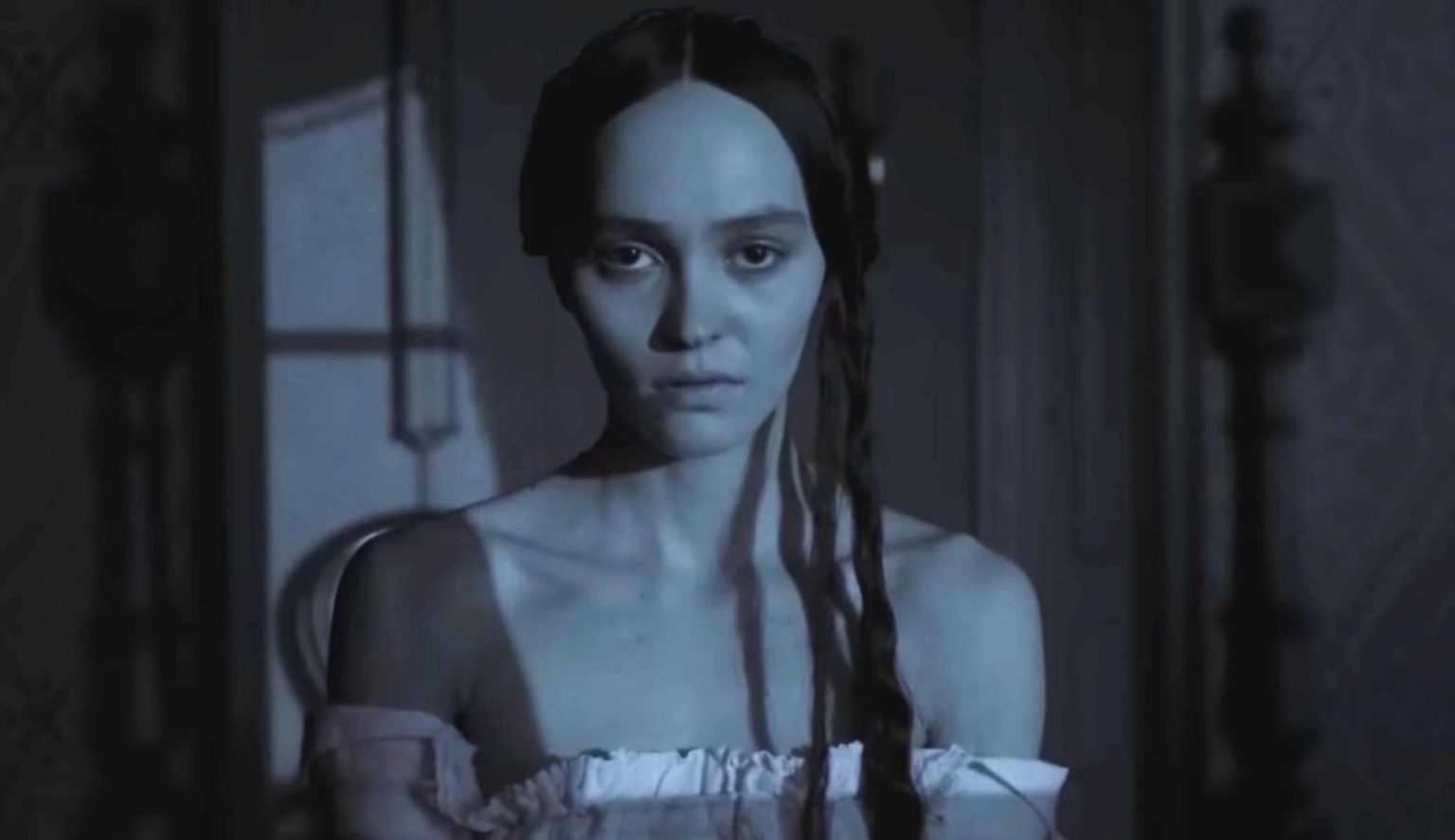Robert Eggers’ Nosferatu reboots the legendary 1922 horror film, upping the sexual undertones of the original by imbuing Ellen (Lily-Rose Depp) with an unhealthy longing for the hideous Count Orlok (Bill Skarsgård).
‘Nosferatu’ Was Inspired By ‘Dracula’
The original Nosferatu is actually a retelling of Bram Stoker’s Dracula, replacing the titular vampire with Orlok, who lacks Dracula’s seductive charm and human appearance.
Eggers’ Nosferatu does away with modern cinematic vampire tropes and returns to the folkloric roots of the vampire, as well as staying faithful to the spirit of the 1922 film.
Eggers really leans into the clash between life and death, light and dark, his human characters overflowing with hot blood and animalistic sexual urges, in stark contrast to the moldering decay that surrounds Count Orlok.
Eggers doesn’t deviate too far from the plot of the 1922 film, but introduces the idea that Ellen had a role in summoning the creature from beyond the grave, and amplifies the psychic connection between the two.
What Is The Connection Between Ellen And Count Orlok?
Ellen is a desperately lonely girl who has no place in the society she is born in, cursed with the ability to see beyond the veil, into the spirit world.
The occult expert of the film, Professor Albin Eberhart von Franz (Willem Dafoe) declares that in another time period, Ellen would have been a respected high priestess.
Instead, her spiritual sensitivity is viewed with contempt and suspicion by the inhabitants of the “modern” world (1838), and her outbursts are dampened by anesthesia, her writhing body bound to her bed.
Ellen’s childhood isolation leads to her crying out for something, anything, to bring her company. Unfortunately for Ellen, Orlok answers the call, awakening from his long slumber to track her down.
Ellen is then plagued by disturbingly erotic nightmares of Count Orlok, which only diminish once she meets her husband, Thomas Hutter (Nicholas Hoult). Ellen both hates and enjoys these dreams, and thus, is riddled with guilt and self-hatred.
Ellen does manage to settle down and live an ordinary life with Thomas, but her dark desires resurface after Thomas is tasked with selling an estate to Orlok, who his employer believes is an eccentric (and fabulously wealthy) nobleman.
Orlok is more like a demon than a traditional vampire, being a manifestation of Ellen’s repressed sexual desires, smothered by the restrictive social norms of the time period. Orlok is the answer to Ellen’s desperate loneliness, the companion she doesn’t want to want.
In interviews, Lily-Rose Depp has described a “mutual yearning” between her character and Orlok, and the situation as a “love triangle” between herself, her husband and the undead Count.
Once Thomas travels to Orlok’s castle, he is befuddled by the vampire’s mind-control powers, and signs a mysterious contract written in occult letters, unwittingly signing his wife away to Orlok.
However, Orlok requires Ellen’s consent to truly complete the contract and bind himself to her.
What Does Count Orlok Really Want?
Orlok wants to feed on the warm blood of the living and to corrupt the innocent—nothing more. At one point, he describes himself as an “appetite,” and that’s really all he is.
He’s a hungry mosquito, a starving rat, a virus that spreads from host to host, killing each body once the nutrients are extracted. An unholy abomination, Orlok is not supposed to be alive, and barely sustains himself with the lifeforce of the young, beautiful and healthy.
Unlike Dracula, Orlok cannot create new vampires; he simply kills his victims and spreads deadly plague with his army of vermin.
Orlok is draped in the traditional clothing of a Transylvanian nobleman, and like most vampires, also represents the unquenchable greed of the wealthy and powerful.
Despite gorging himself on blood, Orlok cannot stop his body from deteriorating and succumbing to rot.
Orlok wants to merge himself with Ellen, but she cannot bring him happiness, or make him whole; she’s just a particularly succulent meal.
The Ending Of ‘Nosferatu,’ Explained
Once Orlok arrives in Wisborg, he instantly starts slaughtering innocents and infecting the entire town with deadly disease, and makes it clear that he will not stop unless Ellen embraces him.
Having been summoned by Ellen’s desires, Orlok cannot be killed by traditional means—only a blood sacrifice can destroy him. Eberhart von Franz quickly comes to understand this, as does Ellen; the two conspire to distract Thomas on a pointless quest to kill the Count.
In reality, Ellen wants Orlok to believe that she has succumbed to her darkest desires, but she is tricking him into losing his sense of time with bloodlust.
Unlike Dracula, who is only weakened by sunlight, Count Orlok withers at the slightest touch of day, and his careful avoidance of sunlight can only be countered by Ellen’s intoxicating blood, which confuses him into drinking for too long.
Ellen has not really succumbed to his seduction, but has sacrificed herself for a noble cause, ensuring her soul is purified and free, not bound to the damned soul of the undead Orlok.
While the ending of Nosferatu might seem tragic, it does mark a triumph of good over evil, with the town saved and Orlok destroyed forever.
Ellen walked the line between the living and the spiritual world, and the film makes it clear that she was destined for greater things; she just happened to be born in the wrong generation.
MORE FROM FORBES
Read the full article here





